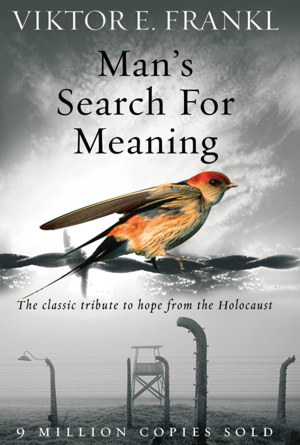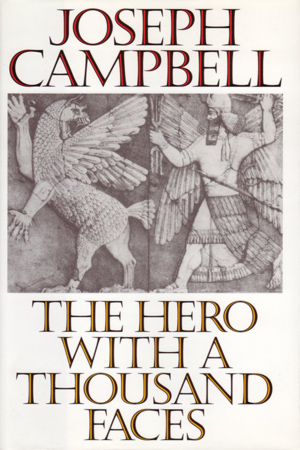What is it that drives us? What is it that helps give our lives direction and purpose when none is forthcoming? If you were to believe the writing of Friedrich Nietzsche then you might answer that man’s ‘will to power’ is what drives him. Then again, if you were to look at the works of Freud then you might suggest that our sex drive is behind everything we do – that the ‘Eros’ imperative is our true motivation for everything from art to violence.
 But historically there have also been some thinkers who put loftier and more intellectual aims at the forefront; who think that it’s our search for meaning and purpose in life that is most fundamental and that helps to give our lives the structure and the context we need. Two of those thinkers were Carl Jung and Viktor Frankl, here we will take a look at their views on the role of ‘meaning’ in the human psyche.
But historically there have also been some thinkers who put loftier and more intellectual aims at the forefront; who think that it’s our search for meaning and purpose in life that is most fundamental and that helps to give our lives the structure and the context we need. Two of those thinkers were Carl Jung and Viktor Frankl, here we will take a look at their views on the role of ‘meaning’ in the human psyche.
Jung and Individuation
Individuation is a term that describes a ‘coming of age’ at which point an individual develops a more concrete and stable personality after going through a period of ‘trying out’ lots of different roles, beliefs and ideologies.
In most scientific literature this process is described as happening in the late teens to early adulthood. During these final stages of development the youth will often seem restless and rebellious as they try out different styles, different beliefs and different careers before ultimately emerging with a better sense of direction.
To Jung however, this process doesn’t end there and instead is a much longer journey that goes on until we reach the latter part of our lives. It’s only once we pass middle age that Jung believes individuation occurs, and we manage to incorporate our unconscious selves into our egos so that we can emerge with better self-awareness, acceptance and sense of purpose. While Jung never drew the connection himself, many have suggested that the mid-life crisis might represent the final difficult stages where we finally come to terms with who we are and what our ‘purpose’ might be. This could also explain why elderly individuals often describe being happier than ever before, and why they often seem content and at peace to observers.
Frankl and Logotherapy
The above theory is one example of Jung moving away from the ideas of his mentor Freud. Like Jung, Frankl was another psychodynamic theorist who believed Freud placed too great an emphasis on sex as a drive for our behaviour and he too felt that our search for meaning was an important part of our psychic puzzle.
In fact, Frankl believed that our search for meaning belonged right at the forefront of studies into the psyche and that it was the most important driving force in our lives (as opposed to sex in Freud’s views). Treatment that followed this school of thought would later come to be known as ‘logotherapy’, ‘logo’ literally translating as ‘meaning’.
To Frankl, a sense of purpose and of meaning is the most important ingredient for a happy and healthy life, something he claims to have discovered for himself during World War II when his sense of purpose was what helped him to survive the Holocaust (you can read all about it in his book Man’s Search for Meaning). Logotherapy maintains that psychological problems arise when someone loses their sense of purpose and finds themselves in an existential funk, at which point it is the therapist’s duty to help them find it once again.
Are They Right?
Of course these are just theories however and old ones at that. As with most psychodynamic theory, it is unfortunately very difficult to study or to prove either way.
But while the specifics of these views may be hard to prove, there is certainly a lot of evidence that suggests meaning is probably very important to our psychological health and it does make a certain amount of intuitive sense.
Another psychologist who thought along similar lines was Maslow who created the ‘hierarchy of needs’. This is essentially a pyramid diagram depicting all the needs that we need to meet in order to feel happy and content psychologically. At the bottom are the basic physical requirements and impulses such as breathing, food, water, sex; then as you go higher you reach things like friendship, family and self-esteem; and finally at the top you have the more lofty and abstract terms such as ‘morality’, ‘spontaneity’ and ‘acceptance of facts’. Several of these higher-order ‘needs’ could be described as the constituent parts of meaning and purpose, and so you could argue that the concept is highly compatible with the ideas of Frankl and Jung.
The Hero’s Journey
 It’s also possible to see parallels with Joseph Campbell’s Hero With a Thousand Faces. This book describes the ‘monomyth’ – a basic structure and series of elements that appear to be consistent across stories from a vast range of cultures including popular entertainment, religion, fairy-tale, myth and legend. This concept is one that has close ties with psychodynamic theory already – featuring the major archetypes that Jung described as existing in our ‘collective unconscious’ such as the ‘wise old man’ and the ‘trickster’.
It’s also possible to see parallels with Joseph Campbell’s Hero With a Thousand Faces. This book describes the ‘monomyth’ – a basic structure and series of elements that appear to be consistent across stories from a vast range of cultures including popular entertainment, religion, fairy-tale, myth and legend. This concept is one that has close ties with psychodynamic theory already – featuring the major archetypes that Jung described as existing in our ‘collective unconscious’ such as the ‘wise old man’ and the ‘trickster’.
According to his theories, almost every story ever told features a protagonist on some kind of journey that eventually involves him or her returning home having learned about themselves and gained a sense of acceptance and understanding.
It may well be that all of us are on a ‘hero’s journey’ of our own – on a quest to find some kind of meaning, purpose and belonging in our lives. Once we find that we may finally find peace, but remember that the journey is always just as important as the destination!



